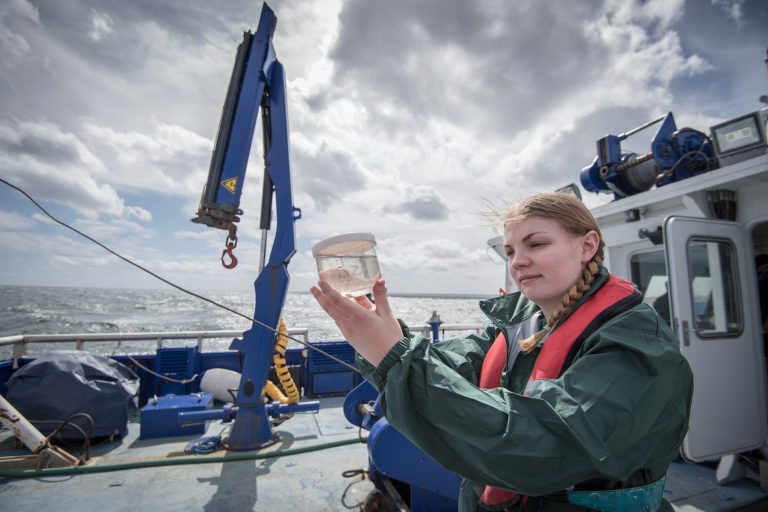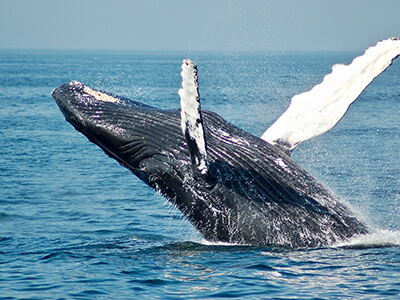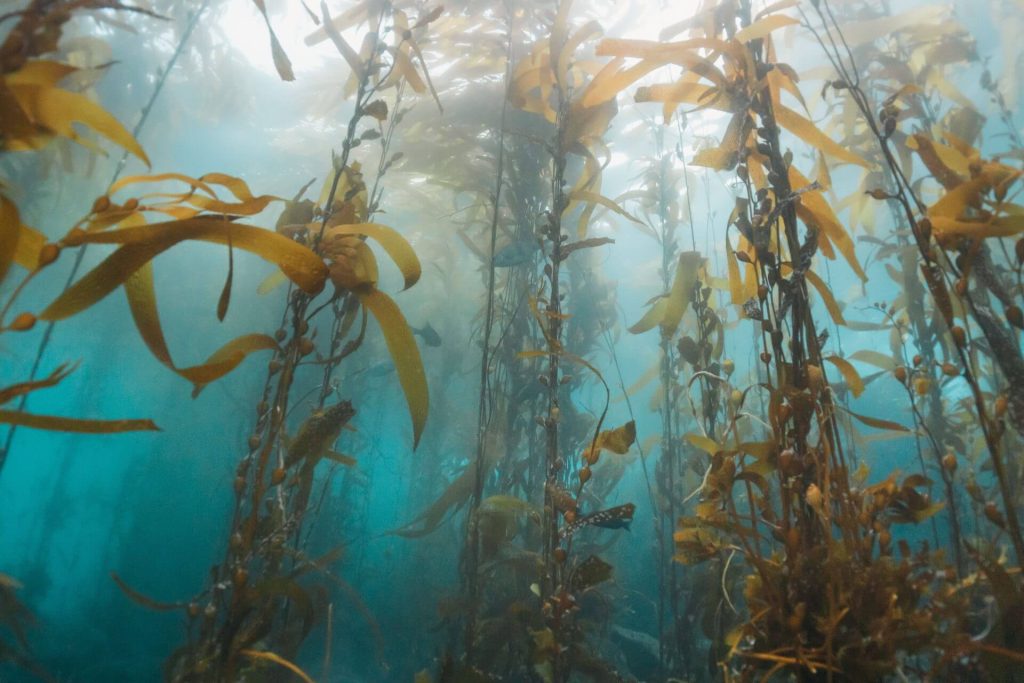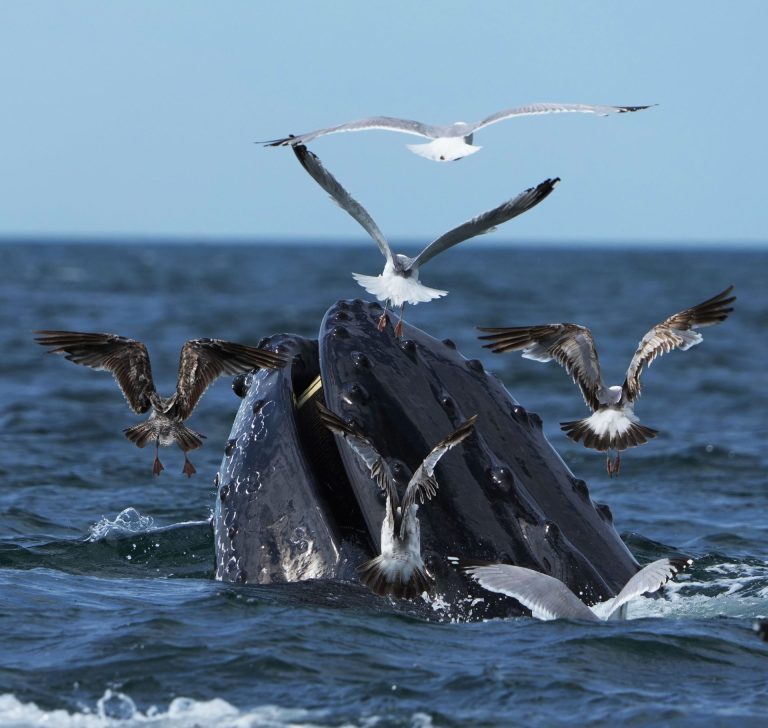High Educational Value
Nationally recognized educational quality at an affordable price.
*Source: ONet Online/U.S. Bureau of Labor Statistics. Unity cannot guarantee employment. Salary data represents averaged earnings for occupations listed and includes workers at all levels of education and experience.

This course provides an overview of oceanography, the chemical, biological, geological, and physical characteristics and patterns of oceans throughout the globe. Specific emphasis will be placed on how ocean behavior and patterns are impacted by and influences human development and coastal communities around the world.

This course will broaden your knowledge of the remarkable and complex subject of marine botany. You will also learn how scientists and conservationists/managers work professionally, especially identifying gaps in knowledge or threats to biodiversity and developing future research to meet those needs.

Students will pursue an in-depth exploration into the identification, evolution, anatomy & physiology, population biology, behavior, and ecology of marine mammals and seabirds. Projects will be completed throughout the course across a wide range of topics related to the biology and ecology of these species, with a particular focus on conservation and ecology.

Marine biology and sustainable aquaculture involves the study of ocean ecosystems and the cultivation of aquatic organisms in eco-friendly ways. Marine biology explores the behavior, genetics, and habitats of marine species, contributing to conservation efforts and understanding biodiversity. Sustainable aquaculture focuses on farming fish, shellfish, and seaweed with minimal environmental impact, ensuring food security and protecting marine environments.
Professionals in this field work on developing sustainable farming techniques, improving fish health, and restoring natural habitats. Careers include marine biologists, aquaculture managers, and environmental consultants, who collaborate with research institutions, government agencies, and private industries.
The BS in Marine Biology and Sustainable Aquaculture prepares students for a broad range of careers helping protect, preserve, maintain, and grow marine organisms and environments. Graduates can obtain employment immediately after graduation with private firms, aquariums, and various government agencies as marine animal trainers, aquaculture scientists, and fisheries technicians. This degree provides students with a broad emphasis on both marine biology and aquaculture and encompasses coursework with the rigor to prepare students for further study in graduate school or even starting their own aquaculture enterprise.
Your online education should be affordable and manageable. Thanks to our promise to keep tuition flat through 2030, you won’t be burdened with unexpected increases or fees.
Our team of distance education concierges will work with you through the admissions process to help you plan and pay for your degree. Learn more about the costs here.
Our comprehensive 120-credit program can be tailored to fit your schedule and goals! Completion time is flexible, determined by the number of credits you choose to take each term (8 terms/year) and less time with transfer credits. Without transfer credits, you can anticipate the following completion times:
General Education Core: 35 credits
Environmental Professional Core: 13 credits
Elective Courses: 38 credits
Program Core: 34 credits
For course requirements and a better look into your program, view our full course catalog. Then apply online for free to get started.
The marine biology and sustainable aquaculture degree requires 120 credits. You may transfer in up to 90 credits from outside institutions. View our full course catalog for a better look into your program. Then apply online for free to get started.
Nationally recognized educational quality at an affordable price.
Committed to sustainable practices to prepare for a future of environmental awareness.
Dedicated to turning career and academic aspirations into tangible achievements.
Accepting up to 90 transfer credits to graduate sooner and save money.
Connect with experts who share your passion for working in the industry.
Ranked #1 independent university in the U.S. by the Social Mobility Index.
With up to 8 terms a year, you can take a break without jeopardizing financial aid.
Balance life, work, and education by studying when and where you want